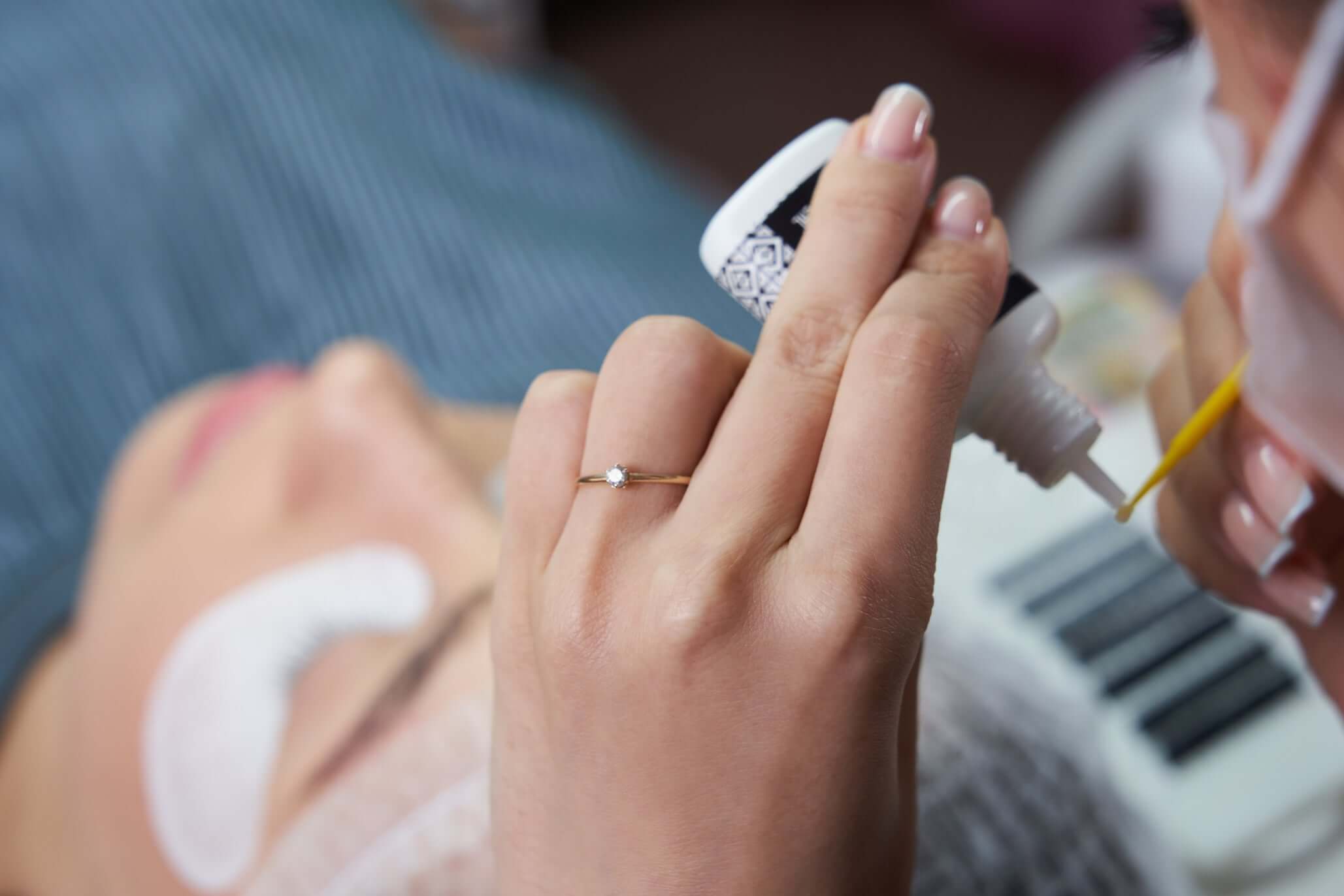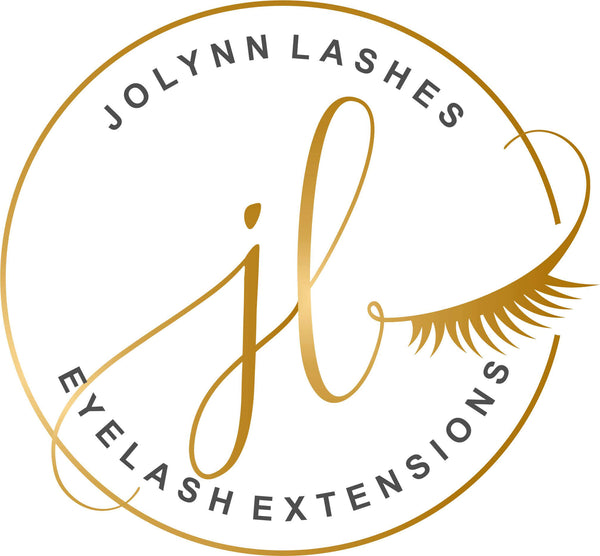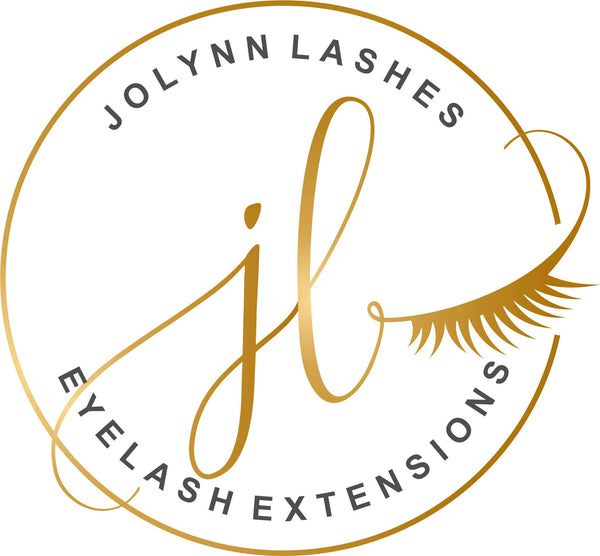
Allergic Reaction To Eyelash Extensions
As a lash technician, you understand that lash extensions are not like false eyelashes. Instead, they are designed to provide your clients with longer-lasting solutions to beautifying their natural eyelashes.
Ideally, they are single lashes that an esthetician or cosmetologist places on the client's eyelashes one at a time. You might realize that most people prefer these extensions because they don't have to wear mascara. After all, the extensions allow users to pick a specific look.
From time to time, you might receive calls from your clients saying that they've experienced an allergic reaction. You don't need to panic because reactions from eyelash extensions are common.
As a lash technician, your clients will regularly come to you seeking knowledge and advice regarding lashes. As such, you need to stay educated on this topic. Since you are the expert in this field, you should be in a position to provide your clients with answers and solutions.
With that said, this post will cover some of the most common allergies to eyelash extensions and explore various viable solutions.
How Do You Know If It's An Allergic Reaction?
Usually, allergic reactions to lash extensions are like other contact allergies. They are often referred to as contact dermatitis. Depending on individuals, the symptoms can appear within a few minutes to a few hours after you place the extensions. They might even take days.
You must also know that these reactions can occur in one or both eyes. In fact, the severity of the allergy might be more intense in one eye than in the other.
Here are some of the common symptoms to look out for.
- Itchiness
- Redness
- Swelling
- Irritation
- Tearing
These symptoms mostly occur in people who have an allergy towards eyelash glue.
Why Do Some People React To Eyelash Glue?
As a lash tech, you need to know when your client is having a reaction to eyelash glue before deciding whether you can turn things around. Lash extension glue can contain many chemicals that release strong fumes.
Since the lashes you put on your clients stick for weeks before coming off, it's possible for some people to react to the adhesive due to the strong chemicals some glues contain. It is important to know that not all lash glue complications qualify as allergies. Some people just have sensitive skin and eyes.
Pro Tip: Use our Bella Rosa lash glue on all your client's with sensitive-skin. Our glue has been proven to reduce reactions in all of our previous case-studies and right now get 20% off your first purchase by using code: lashbabe20 at checkout!
Type Of Allergens In Lash Extension Glue
By now, you already know that the adhesive you use to stick lashes on your clients contains chemicals. So, there's a high possibility that some of these chemicals trigger allergies. Which chemicals are most likely to cause the reactions?
Well, here are the chemicals in lash glue that most likely trigger allergies.
Latex
Latex is one of the major triggers of contact dermatitis. As a result, people who are in frequent contact with latex may experience these allergies. Similarly, some eyelash glue contain latex as an ingredient.
Some clients may not even know that they have a latex allergy. Fortunately, you can always get products that are latex-free to use on any client who reacts to latex.
Cyanoacrylate
Every professional lash tech knows that cyanoacrylate is the main ingredient in eyelash glue. This is because cyanoacrylate makes the strong retention which can last for weeks. The chemical is also used in other fast-drying adhesives, such as tapes, superglue, and band-aids.
Fortunately, allergies related to this chemical are quite rare. The FDA indicates that only about 1 percent of the population is allergic to cyanoacrylate.
So far, there's no substitute for cyanoacrylate, which means that people who have this allergy can never get extensions. Therefore, you must know this about your client before applying a new set.
Carbon Black
Carbon black is the element in lash glue that makes it black. It has to be added to the glue so that it can be blended into the extensions easily. Carbon black is also used in other fields such as plastic production, clothing, and paints.
Like other elements, some of your clients might develop a reaction towards carbon black. Luckily, there's a solution for these clients. You can always use clear glue on them. However, clear glue has its downsides. It takes longer to dry up, plus it has lower retention as compared to an adhesive containing carbon black.
Eyelash Extension Allergic Reaction Remedies
Whenever a reaction occurs amid your lash placement, you need to take some emergency measures.
Most importantly, you have to avoid panicking. That will only make your client worry much more. It's advisable that once you notice the symptoms, start removing the extensions immediately. Additionally, ensure to brief your client throughout the process.
Here are some of the emergency measures to take:
- Clean your client's lashes properly after removing the lash extensions. You should use some lash wash and a cleaning brush.
- Ensure not to touch the eyelids with the extension remover. Doing so might result in further complications.
- Recommend your client to visit her doctor for a check-up to ensure that all is well.
Besides these tactics, here are other methods that will help you deal with reactions.
Cold compress
Cold compress works like band-aid treatment. How so? It helps ease the discomfort your client might be experiencing. A cold compress may include using ice packs or frozen peas. Although a temporary solution, it helps reduce irritation significantly.
Urgent care
In most cases, mild symptoms of reactions may be treated at home. However, there are times when the reactions may affect the eyes severely. Consequently, you need to ensure that your client heads to an urgent care center or her medical professional immediately.
The professional will provide proper advice, including whether the extensions need to be removed. Moreover, a medical professional will be in a position to tell the clients whether they can get the extensions and check if they're allergic to cyanoacrylate.
Cortisone cream
Cortisone cream is one of the most effective remedies that can help you deal with allergic reactions. It is a topical alleviant, which comes in handy when your client has mild reactions.
You can use it on a client who experiences some discomfort, irritation, or redness. You only need to apply a small amount to relieve these symptoms. And the best part? You can purchase this cream over the counter.
Benadryl
Having worked in the lash extension field for a while, you know how much customers appreciate a product that eases the sensitivity of their reaction. One such product is Benadryl, and although it doesn't cure allergies, it takes control.
Benadryl helps to ease the sensitivity caused by the chemical in the adhesive. So, whenever your client calls you saying she's experiencing an allergic reaction, you can always rely on Benadryl as a viable alleviant.
That notwithstanding, using Benadryl can help you establish whether your client has severe sensitivity. To determine this, the client needs to apply a small amount, and you'll monitor her symptoms over 48 hours. Benadryl also helps sensitive clients when they apply it before getting lash extensions.
Eye drops
Has any of your clients complained about their eyes having some redness? Did your client come back complaining of some mild eye irritation? If any of these occur, advise the affected client to use eye drops. They come in handy to reduce irritation. However, the client must seek medical advice to get the appropriate product.
How Can You Reduce The Possibility Of Reaction To Eyelash Extension Glue?
Allergic reactions to eyelash extensions are quite normal. Therefore, you need to know several things you can do to reduce the possibility of a reaction. Such skills come in handy, especially when you're dealing with a sensitive client.
Here are some helpful tips:
Fan The Eyelashes
Have you tried several tactics but your client still complains that she's experiencing some type of discomfort? Well, you can always use a fan. The fan works because there's a chemical present in the glue which goes away once it cures.
Therefore, if your client is sensitive to this chemical, using a fan throughout the process might prove useful. It helps to keep the fumes of this chemical from lingering, thus eliminating the discomfort. You should also use a fan a few minutes after the procedure to ensure that you eliminate all the fumes.
Reduce The Fill Times
Eyelash extensions usually require filling once every two weeks. To reduce the possibility of reactions, you could start by reducing the fill time. Ask your client if they can visit you weekly for a shorter fill instead of every two or three weeks.
Shorter fills imply that your client will get exposed to the fumes of the adhesives for a little amount of time, thus reducing the chances of sensitivity and reaction.
Use A Sensitive Eyelash Glue
Sometimes, using a sensitive eyelash glue is a great option for your sensitive clients. Before you settle for such a product, however, you must know whether your client is experiencing reactions or feeling some irritation.
If you use a sensitive eyelash glue and your clients feel no reaction, then that means that the product works suitably. Do not use the product on clients with persistent reactions. Doing so might result in further damage.
Don't Use The Eyelash Primer
Sometimes, your client may not be allergic to eyelash glue, but she might complain of some irritation. The irritation may come from other products you use during the appointment.
The primer you use, for instance, contains chemicals that might cause some reactions. To eliminate this, you can ditch it, especially when dealing with sensitive clients. Instead, you can use some clean water to clean your client's lashes before every appointment. It serves a similar purpose.
How Long Does The Reaction Last?
An allergic reaction differs from one person to another. Notably, the severity of these reactions may last from a few hours to a couple of days depending on the individual.
Additionally, the treatment options that your client explores will determine how long she will experience the reactions. If the reaction persists after a few days, you should advise your client to visit her doctor promptly.
How To Prevent Allergic Reactions To Eyelash Extensions
In some instances, allergic reactions are not caused by the actual lash glue. It is imperative, therefore, that you identify other allergens and develop appropriate ways to prevent reactions. Doing so might significantly boost your craft, especially with sensitive clients.
One way to prevent allergies is by following the right procedures of lash extension placement. You should also have your workstation as clean as possible.
Moreover, you have to use sanitary equipment. You must also place the equipment in a clean area because dirty items might cause infections or reactions in the client's eyes.
You should also advise your client to always keep their eyes closed during their lash appointment. This ensures that the glue doesn't accidentally fall into your clients eyes.
Additionally, you must know your client's condition because there are people who can't get lash extensions. For instance, you should never place eyelash extensions on people who have alopecia, trichotillomania, and those receiving chemotherapy treatment.
Anyone experiencing irritation in the eyes, and or have open wounds around the eyes, should get medical assistance first before getting lash extensions.
Conclusion
Eyelash extensions are ideal for improving someone's appearance and confidence. However, some people experience allergic reactions from the application. As a professional lash tech, you must know the triggers for these reactions and how to deal with them. Fortunately for you, this post has detailed information on both.
Tagged:

